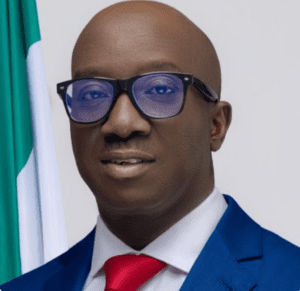


Finding solution to Mali, B/Faso, Niger ECOWAS exit imbroglio
In a move that took the West Africa sub-region unawares, Mali, Burkina Faso and Niger which are under military rule on Jan. 28, announced their withdrawal from the sub-regional politico-economic bloc, ECOWAS.
Whereas Mali and Burkina Faso officially notified ECOWAS on Jan. 29, Niger followed suit on Jan. 30.
Since they carried out putsches the military junta in the trio Sahel countries have engaged the leadership of ECOWAS in a standoff, defying all entreaties, including sanctions to vacate seat of government for democratically elected persons.
Their body language indicated their unwillingness to continue being members of the bloc. However, the announcement came at a time most observers in the diplomatic scene least expected it.
They justified their withdrawal from ECOWAS alleging that ECOWAS had moved away from the ideals of its founding fathers and Pan-Africanism, and had become a threat to its member countries.
According to them, ECOWAS has betrayed its founding principles, has subjugated itself to the influence of foreign powers, and has deviated from the fight against the existential threat of terrorism and insecurity.
The trio of Mali’s Col. Assimi Goita, Burkina Faso’s Capt. Ibrahim Traore, and Niger’s Gen. Abdourahmane Tchiani also slammed the sub-regional body for imposing on them “illegal, illegitimate, inhumane and irresponsible sanctions”.
Analysts are, however, of the view that the decision of the military leaders was tantamount to a ‘hasty, knee-jerk diplomacy,’
They say the action holds fatal repercussions that could, in the long run, mutually harm their countries and citizens on the one hand, with its ripple effects cascading across ECOWAS member states.
Former Minister of Foreign Affairs, Prof Bolaji Akinyemi, argues that the current conundrum implies that ECOWAS faces a wave of crises, that must be carefully and swiftly handled through meticulous diplomatic actions.
“We’re going to need some clever steps, diplomatically, on this matter. ECOWAS needs some fast thinking to make sure that this situation does not get out of hand.
“This is because these three countries alone, in terms of landmass, comprise about half of ECOWAS. So, we’re not dealing with just a little hiccup on our hands”, he told a recent television live programme.
On the allegations that ECOWAS was being teleguided by foreign powers, Akinyemi said: “You know the power that they are referring to, presumably, there is this fear in their minds that the ECOWAS policies are actually French policies.”
Akinyemi, a former Director-General, Nigerian Institute of International Affairs, alleged that Russia may also be emboldening the three countries to factionalise ECOWAS, as part of attempts to weaken Western influence in Africa.
According to him the flip side of the imbroglio is that Russia, unfortunately, has not shown that it has the capability to help the three exiting countries to combat the jihadists in the region.
The Tuaregs, as well as ISIS have sleeper cells in the Sahel region.
Ilaria Allegrozzi, Senior Sahel Researcher, Human Rights Watch, said that the withdrawal of the three countries from ECOWAS would deprive their citizens a key avenue for accountability.
He said it would limit their opportunities to seek justice for human rights violations.
“Their countries’ citizens are deprived from an independent and impartial Community Court tribunal, especially where access to justice at national courts is restricted,” Allegrozzi said.
She recalls that since 2005, the ECOWAS Community Court of Justice has issued landmark decisions on human rights issues, including some concerning Mali, Burkina Faso and Niger.
She the Court issued a ruling in 2008 that held Niger responsible for failing to protect one of its citizens from enslavement by passively tolerating the practice.
On his part, Alioune Tine, the UN Independent Expert described the military leaders in Mali actions as “unilateral decision taken by unelected officials, without any debate, any consultation with the people.”
According to Tine, the military leaders’ action is in breach of the provisions of the ECOWAS Treaty.
The treaty provides that member states wishing to withdraw from the bloc must give it an officially written one year prior notice.
Mr Olusegun Adeniyi, a foreign policy analyst and former Nigerian presidential spokesman, said the first step towards resolving the conflict is that ECOWAS must understand the dynamics and the desperation that triggered the trio’s desire to quit the bloc.
He said prior to quitting ECOWAS, they had long turned to Russia, after being subjected to a prolonged, tremendous domestic pressure since their suspension from ECOWAS.
While Mali was suspended in 2020, Burkina Faso came under the harmer in 2022 and Niger in July, 2023.
“As for the Russian meddlesomeness, it can be dealt with as part of the global anti-authoritarian drive.
“That, of course, presupposes strengthening our democracy at home and working for the peace and prosperity of our people,” he said.
The three countries, as a matter of necessity, have signed a mutual defence covenant called the Alliance of Sahel States.
The pact is was founded on the Mafia code of ‘one for all and all for one,’ having severed military and cooperation ties with their former colonial power, France.
“Burkina Faso, Niger and Mali, collectively, account for 8% of the $702 billion ECOWAS Gross Domestic Product (GDP). They are not being helped by their military adventurers on this issue.
“To that extent, Nigeria’s very strategic importance and political stability are tied to the survival of the regional bloc. The leadership role she plays makes the threat to its existence a serious matter.
“Therefore, the challenge of the moment requires deft diplomatic leadership that is inclusive and multicultural.
“That is the best way to neutralise the departure of France from the affected countries. After almost 50 years, ECOWAS has become part of the political and economic lifeblood of the sub-region,” he said.
Amb. Yusuf Tuggar, Nigeria’s Minister of Foreign Affairs, has underscored the need for member states to carefully assess the far-reaching implications of the three countries withdrawal from the bloc.
Tuggar who is also the Chairman of ECOWAS Ministers Mediation and Security Council (MSC) while speaking at a meeting held in Abuja recently said it was important for ECOWAS to tackle its fallout.
“Our meeting provides the opportunity to carefully assess challenges presented by the decision of the military rulers of Burkina Faso, Mali, and Niger to arbitrarily withdraw from ECOWAS.
“This is amidst the potential implications for their people and indeed, for the Community as a whole, and to review unfolding situation in Senegal and develop a plan to navigate resulting complexities,” Tuggar said.
Ryan Cummings, a security and risk management consultant and Director, Signal Risk, is of the view the move by Mali, Niger and Burkina Faso could subject ECOWAS to significant fragmentation.
The implication of this, Cummings said, is that the bloc’s ability to protect democracy in the sub-region could be severely compromised.
Dr Sulaimon Hassan, an international relations expert and Lagos State University (LASU) don, believes that if the trio exit, ECOWAS, insecurity, particularly in Nigeria, will worsen.
“Most of the security issues in Northern Nigeria are a spillover of the crisis in Chad, Niger and Mali.
Even though they are poor countries, Nigeria needs to have a good relationship with them to enable the Federal Government to curtail insecurity,” he said.
Some experts say resolve the standoff, ECOWAS’ efforts should be more targeted at the military leaders rather than blanket sanctions that could predispose the citizens of the countries to economic hardship.
Dr Omar Touray, President of the ECOWAS Commission, while speaking at the recent Abuja MSC meeting, expressed the hope of resolving the conflict and its fallout.
“These claims have no real basis; the hasty intent on withdrawal of membership from ECOWAS did not take into account the conditions for withdrawal of membership from ECOWAS.
“Such decisions are espoused in the 1993 ECOWAS Revised Treaty, but more importantly, the three members had not reflected the implications of this decision on the citizens.
“We have, therefore, prepared two Memoranda on this issue for consideration, including an analysis of the wider implications of the withdrawal for the concerned member states and the Community at large”, he said.
Speaking in the same vein, Moussa Mahamat, Chairperson, African Union Commission (AUC), called for urgent bold steps to tackle the issues emanating from the three countries exit.
Mahamat was represented at the meeting by Mr Bankole Adeoye, AUC’s Commissioner for Political Affairs, Peace and Security.
“We believe the extraordinary nature reflects the urgency to address these conflicting matters on our continent, particularly in West Africa.
“We are continually faced with terrorism, violent extremism, insurgencies, difficult disruption, and governance deficit, so if these issues are not addressed promptly and holistically, we may undermine our democratic gains“, he said.
At the 37th Ordinary Session of Assembly of Heads of State and Government of the African Union in Addis Ababa, Ethiopia, on Saturday, President Bola Tinubu reinforced the prospect of resolving the lingering standoff.
“The drive for a peaceful, strong, and united West Africa is bigger than any one person or group of people.
“The bonds of history, culture, commerce, geography, and brotherhood hold deep meaning for our people.
“Thus, out of the dust and fog of misunderstanding and acrimony, we must seize the chance to create a new people-centric era of trust and accord,” he said.
Analysts are, therefore, say the actions of the three countries are weighty issues that come with serious repercussions, which ECOWAS should quickly nip in the bud.



